Hildebrand; or, The Days of Queen Elizabeth, An Historic Romance, Vol. 1 of 3 Read online
Page 2
CHAPTER II.
The estate called Neville Grange, the residence of Sir Edgar deNeville, embraced an extensive park, and a roomy and commodiousmansion. This latter was evidently a recent erection, andhad probably succeeded, since the accession of the presentproprietor, to one of some antiquity. It was an unpretendingstructure, but was rendered important by its size, which,with its situation, marked it as the residence of a personof consequence. Its date was as clearly indicated by itsmaterial--the red brick then in use--as by its style, which wasof that substantial yet stately caste called Elizabethan. Itstood on the summit of a gentle acclivity, with its rear andsides, the least finished parts of the building, enclosed byumbrageous trees, and the front commanding a view of the wholeextent of the park.
Sir Edgar de Neville, the present proprietor, had becomepossessed of the Grange on the death of his father, towardsthe latter end of the reign of Mary. He had previously, whileattending on the king-consort, Philip, in Spain, married aSpanish lady, who brought him little dower but her beauty, and,what he prized as highly, her affections. Even these possessionshe was not destined to enjoy long; for shortly after hisaccession to the family estate, his lady died, leaving behind heran infant daughter, a sad memento, in the promise furnished byher scarcely dawning charms, of her own excellence and beauty.
About this time Queen Elizabeth ascended the throne; and SirEdgar, being a Roman Catholic, and opposed to the new order ofthings, which disqualified Roman Catholics for any state officeor employment, was obliged to relinquish his public pursuits,and retire into the contracted circle of private life. But thischange of fortune did not shake his allegiance, or induce himto lend any countenance, however limited, to those treasonableconspiracies which the oppressive enactments of the newlegislature occasionally excited among the Roman Catholics. Sounexceptionable was his conduct, that none of the host of spieswhich the jealousy of Burleigh, the Lord-Treasurer, and chiefminister of Elizabeth, maintained in every part of the country,had ever been able to discover therein the slightest cause formistrust or suspicion. In his excessive caution, he even deniedhimself the full exercise of his religion; and many a year passedby, subsequent to the accession of Elizabeth to the throne,without seeing his threshold once marked with the forbidden stepof a priest.
Thus he lived secluded for a considerable period; but ultimately,after a lapse of some years, he was joined in his retirement bya Spanish gentleman, named Don Felix di Corva, to whom he wasrelated, through his deceased wife, in the degree of cousin.With this gentleman and his daughter, the fair Evaline, he wasresiding at the epoch which opens this history.
These particulars were yet unknown to the cavalier who, at greatrisk to himself, had just rendered Sir Edgar such signal service,and whom the conclusion of our last chapter represented to havefallen in a swoon. On recovering his senses, he found himselfdisposed in a comfortable bed, in an upper chamber of Sir Edgar’smansion. A skilful chirurgeon, whose residence was hard by, andwhom a mounted servant had brought express to the mansion, stoodby his bedside, and Sir Edgar himself was watching anxiously forhis recovery. Directly this took place, the chirurgeon, with thepromptitude of an alert practitioner, examined the wound in hisarm, and, with little difficulty, succeeded in drawing forth thebullet. That effected, he carefully dressed the wound, and thecavalier, at his suggestion, was then left to repose.
The pain of the wound, yielding to the soothing influence of thedressing, which met the heated blood with a refreshing coolness,had materially abated, but still the cavalier could not disposehimself to sleep. Relieved from bodily pain, his mind, whichphysical suffering had hitherto kept in subjection, began tobestir itself, and led him into such a conflict of thought, asamounted, in the end, almost to distraction. Hour succeeded hour,and yet his eyes, in spite of his utmost efforts to obtain rest,remained unsealed, and his senses alive to the finest perception.Thoughts arose unbidden, and almost against his will, from thedeepest recesses of his heart, with recollections of the past,and fears of the future, in which he had to play a most perilouspart, all mingled together. Yet this state of mind, if bodilysuffering was not its actual source, did spring partly from hiswound, and the peculiar excitement attending its infliction,though it was mainly caused by an untimely contemplation of hispersonal prospects. The same object continued to engage hisattention, in every variety of shape, and under every possibleaspect, till he was overtaken by exhaustion, and then--and nottill then--did he fall asleep.
It was yet early in the morning when he awoke. He was surprisedto find, on becoming completely awake, that his wound now gavehim no pain; and he was able to rise without inconvenience. Asmall handbell, which stood on a chair beside his bed, brought anaged domestic to his chamber, and, with the assistance of thisindividual, he entered on his toilet, and was soon fully attired.
Learning that neither Sir Edgar nor his daughter had yet risen,he left word with the servant, for their information, that heshould take a stroll in the park, and return to meet them at thebreakfast-table. With this intimation, he descended to the hall,and thence, finding the hall-door open, passed into the park.
As he gazed inquisitively round, his eye fell on a walk that,from its being hedged in by tall shrubs, wore a more secludedlook than the others; and, whether for this reason, or because itwas the nearest, he bent his steps thitherwards.
He did not pass into the walk without being observed. He hadtaken but a few paces, when a man’s head, shrouded in a slouchedhat, was cautiously raised from the adjacent shrubs, and fixed soas to view him without discovering itself. Whether he was or wasnot alive to the objects around, this escaped his observation;and probably in an excess of self-confidence, not caring to beobserved, or fearing to be molested, he passed along withoutcontracting any suspicion that he was watched and followed.
Thus he proceeded till the walk was crossed, at some littledistance from the mansion, by a public footpath, which openedto him on either side a view through the trees. But though thescene here presented had many points of attraction, only oneobject seemed, by its seizure of his attention, to inspire himwith interest. This was the spire of a village church, which wasjust visible over a wood-crowned hill, or eminence, about a miledistant.
It was a pleasing feature in the landscape, and was calculated,by its upland situation, to attract the attention of anyspectator; but the cavalier appeared to regard it with someemotion. As he continued to gaze upon it, his face assumed agraver aspect, and the thoughts which were passing through hismind, evidently with pain, partly found utterance.
“Why not go there now?” he said. “’Tis but a short walk, andI shall be back, if I make no delay, before they come down tobreakfast. I will even go.”
With these words, he passed off the park-walk, and struck intothe path that, with occasional curvatures, led across the parktowards the point he had been viewing. He walked at a smart pace,and shortly arrived at the base of the hill, which presented aless steep ascent, and a more level road, every step. The road,taken from this point, wound through a small wood, now teemingwith verdure, and apparently alive with the notes that, as thetraveller passed along, broke through the foliage from a hundredbirds. Towards the summit the wood broke abruptly off, leavingthe country, which was spread around like a garden, open on oneside, and revealing a prospect of great extent and variety. Ofthis, however, we have to deal with only one feature--the church,which stood on an area immediately in front of the wood, on theright-hand side of the road. It was surrounded, according to theimmemorial custom, with a burial-ground, enclosed by a sunkenwall, which escaped observation till one had almost approachedits brink. An old culvert, mantled with moss, opened from theroad to the churchyard gate, from which a path led past thechurch porch to a gate at the further end. Over this the cavalierbent his way, and, with an increased sadness of aspect, passedover the graves to the back of the church, and there came to astand.
He turned his eyes hastily over the graves around, but only oneof the several before him fixed his attention. This was, liket
he others, covered with green turf; but, unlike the others, itwas also marked by two white posts, one at the head, and theother at the foot, which were surmounted by a board, bearing thisinscription:--
_=Hyldibrande Clyffurd, Martyrre=_.
The eyes of the cavalier filled with tears as they fell on thisexpressive memorial, yet there was mingled with his grief, in thecontraction of his arched brow, more than a shade of anger. Butit speedily subsided, and with a quick step, he passed by thetwo or three graves that intervened, and, advancing to the oneindicated, he threw himself on the turf before the grave-post,and buried his face in his hands.
Several minutes transpired before he looked up; and his face,though still impressed with an air of dejection, was then morecomposed, and his eyes less clouded. Casting a glance around,he perceived that, though his impression had been otherwise,he was not the only inmate of the churchyard, as a man stoodon the path before him who shared in the possession. He was ofthe middle degree of stature, stoutly built, and apparently, tojudge from his already grizzled hair, about forty years of age.His countenance might in early life have been prepossessing; buteither from care or dissipation, or perhaps from both, it wasnow haggard and stern, and calculated more to excite suspicion,than to command respect. There was, too, an unnatural brilliancyin his eye, which, taken in connection with his shaggy brows,and long and neglected locks, that peeped out from the brim ofhis slouched hat, imparted to his looks an excessive wildness,very far from being becoming. The impressions created by thesecauses were confirmed, to a certain extent, by his attire, whichwas slovenly and mean, and betokened no less an acquaintancewith poverty, than a habit of neglecting and contemning the mostessential duties of the toilet.
Directly this person, on his turning round from the grave,incurred his notice, our young cavalier sprang to his feet,and, with some degree of chagrin, prepared to retire from thechurchyard. Before he could carry his design into effect,however, or had even taken a single step towards its execution,the intruder interposed, and, by a few brief words, made himpause.
“What ho! Master Hildebrand, is it thou I have been dogging soclose?” he said.
The cavalier, though evidently taken somewhat aback, turned aglance of earnest inquiry on the speaker, and, after a moment’spause, replied--“Thou knowest me?”
“’Tis more than ten years since I last saw thee,” answered theother, “and thou hadst then, if I mind me truly, scarcely seenthy fourteenth summer, and yet I remember thee right well.”
“By my troth, thy face strikes me familiarly,” resumed thecavalier; “but I need hardly go back so far, methinks, to callit to my remembrance. Thou mayst thank thy horse that he showedme good heels last night, or thou wouldst now, mayhap, have beenless at thine ease than thou seemest to be.”
The robber--for he was one of the two robbers who had attackedSir Edgar de Neville on the previous evening--faintly smiled ashe replied,--“And does thy memory bear thee no further back,Master Hildebrand? What the good year! can such a brief time asthis, which has barely made thee a man, efface the memories of awhole boyhood? Then, in good sooth, Master Hildebrand, I am notthe man to claim thy acquaintance.”
“Hold!” exclaimed the cavalier, springing forward, and seizingthe robber by the arm; “thou seemest to know me, and, by myconscience, now I behold thee nearer, thy face doth strike melike an old friend’s; who art thou?”
“When thy poor old father,” answered the robber, with someemotion, “had been burned for heresy, in the reign of scarletMary, it was my hands laid his ashes in yonder grave. When yourmother was houseless, with shame on her brow, and the pang ofsorrow in her heart, it was I gave her a refuge, and held hersafe from the hellish Papists. When her saintly heart beat itslast, it was my hands laid her there, by the side of your father.Nay, hear me out! I cherished thee, their offspring: such lore asI had knowledge of I taught thee, and would, in time, have hadthee better taught; but--”
“You lost me, good Bernard,” said the cavalier, seizing him bythe hand.
“Nay, I’ll not clasp thy hand,” said the robber, though at thesame time suffering the cavalier to take his hand up. “Thy handhas met the clasp of Papists; and by my sweet Saviour, whom theyonce made me deny, mine never shall.”
“Nay, good Bernard Gray, this is hardly honest,” said thecavalier, in a tone of remonstrance. “By my faith, I did notseek the Nevilles; I was seeking thee, not them, when they fellunhappily in my way. I did but help the weaker side.”
“Was it any concern of thine?” demanded the man called BernardGray, his eyes lighting up with the fiercest enthusiasm. “Am I tobe thwarted in my revenges by thee?”
“’Twas not the Nevilles, Bernard, Papists though they be, thatburned my father,” said the cavalier.
“Be they not of the devil’s flock?” returned Bernard. “But thoughit hath cost me my comrade’s life, let it pass now; and tell me,if thou canst, what ill deed of mine led thee to run away fromme.”
“Alas! Bernard, I never ran from thee,” answered the cavalier;“I was forced away, and carried off, against my will, to the newplantations. Thence I finally escaped, and, getting on shipboard,became a mariner. I have prospered on the seas, and am now, Ithank Heaven, well to do in the world.”
“Forced away, saidst thou?” rejoined Bernard. “This must behonest Master Shedlock’s work.”
“He was secure of my patrimony,” observed the cavalier, “yetwould he have made me a slave.”
“And a bastard,” muttered Bernard.
“Even so,” answered the cavalier.
“But he may be foiled yet,” resumed Bernard. “Where art thoustaying?”
“With the Nevilles,” replied the cavalier, with some hesitation;“but ’tis only for a day or two. In a week, at furthest, I mustbe gone.”
“I would rather thou didst not eat the salt of Papists,” saidBernard; “but for a day or two let it be so. I shall be on thewatch, and will see thee again, by some means or other, beforelong. Meanwhile, fare thee well!”
“Farewell, Bernard!” answered the cavalier, extending his hand.
They shook hands, and parted. Bernard took his way towards theneighbouring wood; and the cavalier, without once looking behind,turned to the high-road, and walked leisurely homewards.
Though his recent conversation with Bernard had shown him to becordially attached to that person, it must not be supposed thatthis reconciled him, in the least degree, to the unlawfulnessand violence of Bernard’s pursuits. What was the precise natureof those pursuits he did not know; but a sufficiency had beenrevealed to him, in the affair of the previous evening, tobespeak them unlawful, and even to stain them with the cryingguilt of blood. This was a melancholy recollection, and, onlythat past obligations had taught him to look upon Bernard ashis best friend, it would have been impossible for him, with theprinciples he entertained, to have maintained any correspondencewith that individual, whatever prospect of ultimate good oradvantage it might have held out to himself. But though hisdependence on Bernard was almost unalienable, it was for thegreat debt which he already owed him, and which was bound up withthe deepest feelings of his heart, that he continued to regardhim as his truest friend. He knew, too, that Bernard had embarkedin the enterprise against Sir Edgar Neville more from motives ofrevenge, which, however mistaken, had sprung originally from acruel and overwhelming provocation, than from a desire of spoil;and this considerably lessened his detestation, if we may usesuch a strong term, of his recent outrage.
On his arrival at Neville Grange, Hildebrand Clifford--for so thecavalier was named--found that Sir Edgar and his daughter hadnow descended to the breakfast-room. By them he was introduced tothe third member of the family, Don Felix di Corva, who, as hasbefore been set forth, was a Spaniard by birth, and related toSir Edgar’s deceased wife in the degree of cousin.
Don Felix was a youthful-looking man, of a slight figure, andabout the middle height. His complexion was dark, yet not ofthat sparkling darkness which we associate with the young facesof
his country, but rather of a sallow tint, such as, in manyinstances, arises from long confinement, or from an uncertain anddelicate state of health. His dark eyes, too, though brilliant,were rather subtle than deep, and more indicative of cunning,than denotive of penetration. On a first meeting, however, and toan individual who did not found impressions on the illusive andequivocal testimony of personal appearance, these unfavourablepoints in his _ensemble_ might have escaped notice; but DonFelix, by an unlucky fate, inherited a large share of the prideand coldness of several generations of ancestors, and theseimparted to his manners a reserve and formality, that invitedattention to his every defect.
But though his disposition did not generally incline him to formnew acquaintances, he received Hildebrand, on this occasion,with every mark of courtesy and respect. After the firstinterchange of compliments had been despatched, he inquiredanxiously concerning the state of his wound, and expressedhimself gratified, in common with his two relations, that itpromised so fairly to be shortly healed. As the conversationpassed to ordinary topics, he seemed, it is true, to shrink moreinto himself; but his reserve was less noticeable in the generalanimation, and thus escaped remark.
The meal over, Sir Edgar announced his intention of visitinga neighbouring magistrate, named Shedlock (to whom thishistory has before had occasion to allude), for the purposeof acquainting him with the particulars of the affair of thepreceding evening. Don Felix accompanied him; and Hildebrand andthe fair Evaline, who had already become fast friends, were leftto entertain each other till their return.
To two persons of their turn of mind this was an easy and mostagreeable employment. Hildebrand could tell, not only of strangelands, but of a strange world--of the new hemisphere, which,by the perseverance of a few daring adventurers, had just beenopened to the enterprise of Europe, and added to the limitsof the earth. Evaline could listen, question, and smile hergratification: the relation of “the dangers he had passed,” bothby flood and field, and under every variety of fortune, unfoldedto her view a new picture of life and an enlarged idea of humancharacter. On the other hand, Hildebrand, without being vain,or making himself the hero of his own tale, found pleasure inrelating and describing those dangers, because, from the interestmanifested in her countenance, he saw that “she did pity them.”And thus, with the liveliest sympathies of each engaged, themorning passed quickly by, and they were only admonished of itsflight by the return of Sir Edgar and Don Felix.
They now learned that the magistrate whom Sir Edgar had beento visit was not at home when he called. This, however, mostunfortunately, was considered of little consequence; and as SirEdgar and he were not on neighbourly terms, it was determined tosend him a report of the late outrage in writing, and there, forthe present, to let the matter drop. A report of this kind wasaccordingly drawn up, and transmitted, with a letter from SirEdgar, without further delay.
The day wore on without interrupting, by any single incident,the harmonious relations that had begun to subsist betweenHildebrand and Evaline. The novelty of first acquaintancesubsided, but not its fresh and generous feelings; and theycontinually presented to each other, by some stray sentimentor expression, the trace of some new quality, or appearedpersonally to new advantage. Yet their mutual esteem grew uponthem unconsciously, and they could not tell, with any accuracy,whence arose those pleasurable sensations with which they almostunwittingly regarded each other.
The day passed lightly off, as did the next, and severalsucceeding days, and nothing happened to disturb the generalharmony. But a few days served to show Hildebrand, on closeobservation, that at least one of the inmates of the mansionbegan to regard him with displeasure. The Spaniard, Don Felix,from whatever cause, evidently looked upon him with jealousy anddislike. In vain did Hildebrand, by a marked courtesy, endeavourto overcome this bad feeling; the Spaniard seemed desirous toavoid him, or, when he could not do this, to approach him withsuspicion and reluctance.
Several days had elapsed, when one evening, shortly after sunset,Hildebrand found a letter on the table of his bed-chamber, withthe superscription of “Captain Hildebrand,” which drew hisattention to other matters. The letter requested him to repairthat evening to the bottom of the park-walk, where the publicfootpath, noticed in the early part of this chapter, struckacross the park to the village of Lantwell. There, the letter setforth, he would find a friend, who was desirous to commune withhim, pursuant to their previous understanding, on a matter ofpressing moment.
Though there was little to guide him to such a conclusion,Hildebrand rightly conjectured, from the tenor and spirit of theletter, that his anonymous friend was no other than BernardGray; and, therefore, he determined, directly he had run theletter over, to set out for the spot appointed straightway.
The evening was just opening as he entered the walk which ledto the public footway. But he was so impatient to join hisfriend, in accordance with the request of the anonymous letter,that he walked at a smart pace, never thinking that he mightarrive at the appointed spot before he would be expected. Ashe approached the scene of the appointment, one of Sir Edgar’sservants--the same that had assisted him to repel the attackof the robbers--met and passed him; but Hildebrand was sobound up in the enterprise he had in hand, and the thoughtsand expectations connected with it, and to which he probablyattached more importance than was their due, that he rendered noacknowledgment of the servant’s salute. Some half-dozen pacesmore brought him to the footway, and he turned out of the walk,and took a few steps into the open area adjoining.
A cluster of shrubs grew by the side of the footway, whence theyswept back, with diminished volume, to the park-walk, where theywere arrested by the tall trees with which the walk was bounded.They were well adapted to afford any person who sought to avoidobservation a secure hiding-place, but they might, nevertheless,have failed to incur the particular attention of Hildebrand,only that a sound just now broke from them, like the tread of aman’s foot on dead leaves, that led him to believe they were notuntenanted. Regarding them more attentively, he distinguished thefigure of a man, wrapped in a capacious cloak, crawling alongbetween the shrubs; and the next moment Bernard Gray--for he itwas--confronted him.
“How farest thou, Master Bernard?” said Hildebrand, extending hishand.
“Indifferently well,” replied Bernard, accepting his profferedhand and clasping it cordially; “and how dost thou?”
“I’faith, well enough in body, Bernard,” answered Hildebrand,“but somewhat ill in mind. Thy note came duly to hand, and,to speak sooth, was but timely; for I must leave these partsto-morrow.”
“Thou know’st my retreat,” said Bernard, “in case thou hadst notheard from me. ’Tis still at the Angel.”
“I should have sought thee there,” replied Hildebrand.
“Dost leave here i’ the morning?” asked Bernard. “I would thoucouldst wait, if it be possible, till thou seest me again.”
“I will wait till the even,” answered Hildebrand; “but what isthy purpose?”
“I will tell thee, first, to be of a wary habit, and have a carethat thou comest not in the way of Master Shedlock,” returnedBernard. “I have it on good warranty that he knows thou arthere.”
“I fear him not,” rejoined Hildebrand. “But what wouldst thouhave me stay for?”
“This hoary villain,” said Bernard, “who keeps thee from thybirthright of Clifford Place, which he calls New Bethlehem, hatha wife, who, albeit she holds him in an idolatrous love, hath yeta spice of goodness in her temper; and I would have leave fromher to bring thee and her to a parley.”
“Wherefore wouldst thou this?” asked Hildebrand.
“She hath often told me,” resumed Bernard, “when I have mournedthee dead, that she was assured thou wast yet living, and wouldstone day return. She hath told me, too, that thy mother did her akindness years ago; and if so be that she lived to see thee, shewould bear it well in mind. Nay, it is she that bade me warn theenow, in her name, to be upon thy guard.”
“Well, I will be ruled in
the matter by thee, Bernard,” observedHildebrand; “but I cannot stay, mind, longer than to-morroweven.”
“I will remember me so,” answered Bernard.
“There is one thing more I would ask of thee,” pursuedHildebrand. “Hast thou aught to prove that I was born in wedlock?”
“Nothing--not a scrap,” replied Bernard. “There is no record ofthy mother’s marriage in the parish-book, though I could havebeen sworn, at one time, that ’twas duly writ there. The oldvicar, Father Day, who wedded her, can only tell of it in heaven;for he and thy father were buried together. There is no livingwitness but myself.”
“Then I am but a natural,” said Hildebrand, bitterly.
“Despair not! despair not!” cried Bernard, seizing him by thehand. “Who shall quarrel with the ways of Heaven? Hath He notsaid, by the mouth of His holy prophet, that His ways are not ourways, or His thoughts as our thoughts.”
The passion apparent in the voice of the enthusiast, which wasraised above its wonted tone, pervaded his whole frame, and hishand clasped Hildebrand’s with the tightness of a vice.
“May His will be done!” said Hildebrand. “I will see thee againto-morrow, Bernard.”
“At noon, on this spot,” replied Bernard; “and meanwhile be thouon thy guard against Shedlock,--and fare thee well!”
“Farewell, and do thou be guarded also!” said Hildebrand.
The robber made no reply, but, silently waving his hand, turnedsharply round, and bent his steps over the footpath towardsLantwell. Hildebrand watched him till he reached the boundary ofthe park, when he also turned away, intending, though in no moodfor society, to return straight to the mansion.
But, looking up, he perceived that the outlet of the footway,where it opened into the park-walk, was occupied by two persons,who, from the animosity which was manifested in their looks,appeared to be disposed to dispute his passage. One of thesewas the servant whom he had encountered when on his way to meetBernard; and the other, who appeared to be the more hostile, washis host’s cousin, Don Felix di Corva. He immediately rememberedthat the servant had been in attendance on Sir Edgar at the timethat the Knight had been attacked on the road, and he reflected,on a second thought, that he might now have seen him incorrespondence with his friend Bernard, and have recognised thelatter as one of the two individuals by whom the attack had beenmade. This accounted, at the very first view, for the apparenthostility of Don Felix, whom the servant, no doubt, in a momentof rage, had brought to witness the duplicity of the family’s newacquaintance.
Though taken by surprise, Hildebrand was not confounded by thisoccurrence; and after a brief pause, he advanced towards the twounfriendly observers with perfect confidence.
“A good even to thee, _Senhor_!” he said, addressing Don Felix.
“Such deeds as thine,” answered Don Felix, sneeringly, “give asavour of vileness to the sweetest even. Hast thou no shame, Sir,that thou canst thus meet mine eye unmoved?”
“I’faith, thou hast a foul tongue, Sir Spaniard,” returnedHildebrand; “and only that thou art kinsman to good Sir Edgar, Iwould straight clean it with my rapier.”
“Let not this spoil a good disposition,” said Don Felix. “Drawforth thy wondrous rapier; for I denounce thee, in the presenceof this menial, as a traitor and a spy!”
A flash of anger mounted to Hildebrand’s cheeks at these words,and his rapier, on which his grasp had already been fastened,leaped from its scabbard on the instant.
“Such terms would provoke an angel!” he said. “Stand on thyguard!”
But the Spaniard, expecting what was to follow, had already donethis, and, consequently, he met Hildebrand’s assault with perfectcomposure. Indeed, as Hildebrand had not expected to find him askilful swordsman, and assailed him with some impetuosity, heat first had the advantage in the struggle. Directly Hildebrandperceived this, however, he became more collected, and a fewmoments served to show that, at the least, he was fully equal,if not superior, to his adversary. At length, the latter made alounge at his side, and Hildebrand, by an adroit stroke, beat hissword out of his hand, and held him quite at his mercy.
“Take up thy weapon, Sir!” said Hildebrand.
With this he turned away, and, thrusting his sword into hisscabbard, passed down the walk towards the lower section of thepark, which was, from its greater seclusion, more in keeping withthe mood that he was disposed to indulge in. The Spaniard didnot follow him, and, left to himself, he had leisure to dwelland ponder on the thoughts which his situation was so eminentlycalculated to inspire.
Reflect how he might, he could not allow that he had doneanything wrong. He was disgraced, but undeservedly so; hisconduct was free from dishonour, but, whatever he might say,he could not make this apparent. He had been seen in friendlycommunication with a most questionable character, and he couldnot explain, with any degree of safety, how his intercoursewith him was justifiable. Indeed, if circumstances had evenallowed him to render such an explanation, he could not giveit any appearance of probability; and his character, instead ofbeing cleared, would only be further degraded by the attempt toretrieve it.
Such were the mortifying reflections that pressed upon the youngcavalier, as he hurriedly paced the park-walk. The night drewnigh, and ultimately set in; but, insensible of the influencesaround, he still indulged his reverie, and continued to pace thesame walk, maintaining the same smart step, without once halting.
But the night came on cold, and ultimately, falling into a slowerpace, the chill air aroused him. He then turned away from hislate walk, and passed leisurely towards the mansion.
It was a dark night, and the trees overhanging the walk made hisway still more obscure. He passed freely on, however; and hadjust come within sight of the lights that now marked the mansion,near the end of the walk, when a blow from a bludgeon, inflictedby some person in his rear, knocked him down, and stretched himsenseless on the ground.

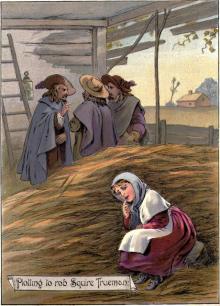 Goody Two-Shoes
Goody Two-Shoes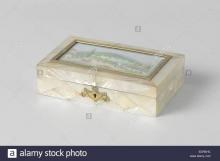 The Pearl Box
The Pearl Box And when you gone...
And when you gone... Stranger At The Other Corner
Stranger At The Other Corner My Young Days
My Young Days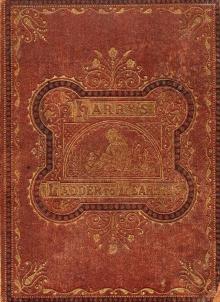 Harry's Ladder to Learning
Harry's Ladder to Learning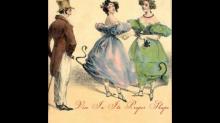 Vice in its Proper Shape
Vice in its Proper Shape_preview.jpg) Promise (the curse)
Promise (the curse)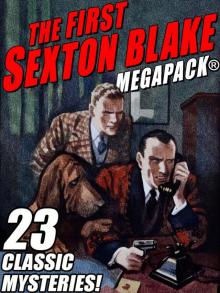 The First Sexton Blake
The First Sexton Blake Golden Moments
Golden Moments Hildebrand; or, The Days of Queen Elizabeth, An Historic Romance, Vol. 2 of 3
Hildebrand; or, The Days of Queen Elizabeth, An Historic Romance, Vol. 2 of 3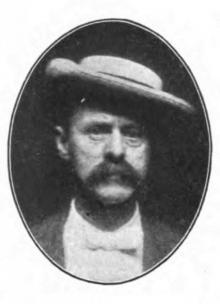 The Ice Queen
The Ice Queen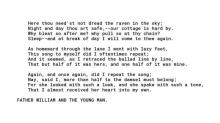 Phebe, the Blackberry Girl
Phebe, the Blackberry Girl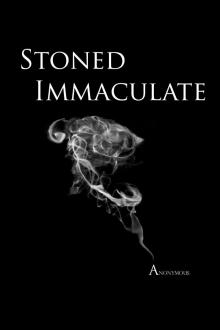 Stoned Immaculate
Stoned Immaculate Hildebrand; or, The Days of Queen Elizabeth, An Historic Romance, Vol. 3 of 3
Hildebrand; or, The Days of Queen Elizabeth, An Historic Romance, Vol. 3 of 3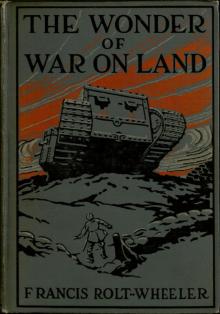 The Wonder of War on Land
The Wonder of War on Land Breaking Bailey
Breaking Bailey The Little Girl Who Was Taught by Experience
The Little Girl Who Was Taught by Experience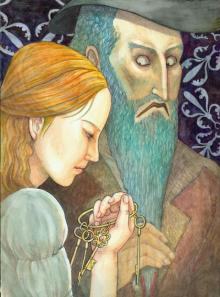 The Popular Story of Blue Beard
The Popular Story of Blue Beard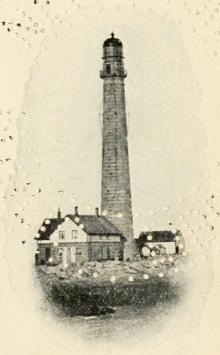 The Life Savers: A story of the United States life-saving service
The Life Savers: A story of the United States life-saving service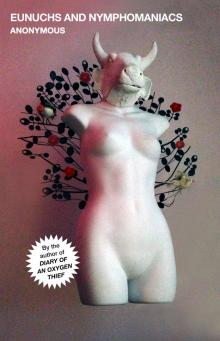 Eunuchs and Nymphomaniacs
Eunuchs and Nymphomaniacs Hildebrand; or, The Days of Queen Elizabeth, An Historic Romance, Vol. 1 of 3
Hildebrand; or, The Days of Queen Elizabeth, An Historic Romance, Vol. 1 of 3 Kitty's Picnic, and Other Stories
Kitty's Picnic, and Other Stories Two Yellow-Birds
Two Yellow-Birds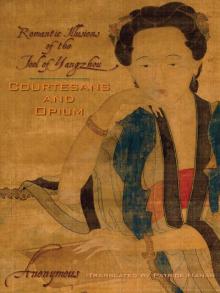 Courtesans and Opium
Courtesans and Opium The Emigrant's Lost Son; or, Life Alone in the Forest
The Emigrant's Lost Son; or, Life Alone in the Forest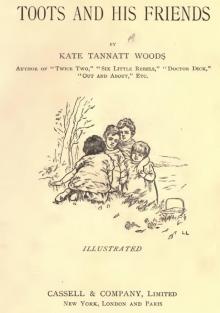 Toots and His Friends
Toots and His Friends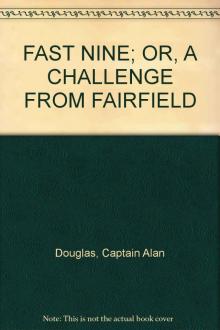 Fast Nine; or, A Challenge from Fairfield
Fast Nine; or, A Challenge from Fairfield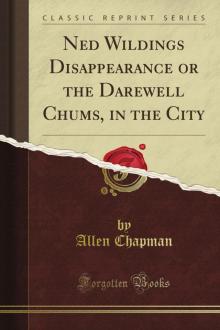 Ned Wilding's Disappearance; or, The Darewell Chums in the City
Ned Wilding's Disappearance; or, The Darewell Chums in the City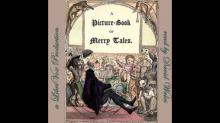 A Picture-book of Merry Tales
A Picture-book of Merry Tales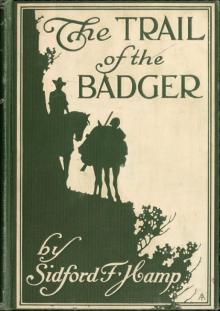 The Trail of The Badger: A Story of the Colorado Border Thirty Years Ago
The Trail of The Badger: A Story of the Colorado Border Thirty Years Ago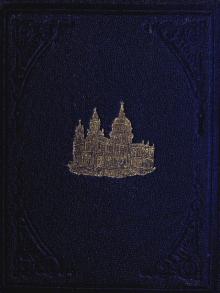 Peter Parley's Visit to London, During the Coronation of Queen Victoria
Peter Parley's Visit to London, During the Coronation of Queen Victoria The Rainbow, After the Thunder-Storm
The Rainbow, After the Thunder-Storm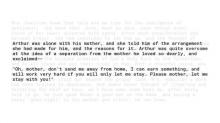 Arthur Hamilton, and His Dog
Arthur Hamilton, and His Dog The Story of the White-Rock Cove
The Story of the White-Rock Cove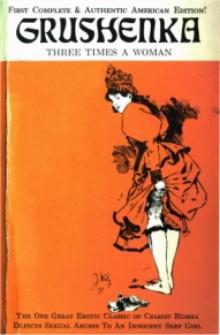 Grushenka. Three Times a Woman
Grushenka. Three Times a Woman Adventures of a Squirrel, Supposed to be Related by Himself
Adventures of a Squirrel, Supposed to be Related by Himself Falling in Love...Again
Falling in Love...Again The Colossal Camera Calamity
The Colossal Camera Calamity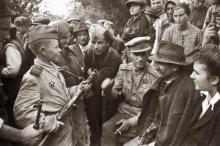 Child of the Regiment
Child of the Regiment Elimination Night
Elimination Night The Kingfisher Secret
The Kingfisher Secret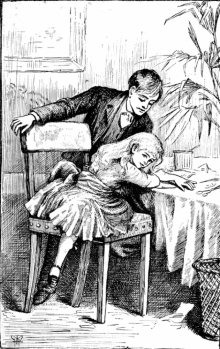 Left to Ourselves; or, John Headley's Promise.
Left to Ourselves; or, John Headley's Promise. The Island of Gold: A Sailor's Yarn
The Island of Gold: A Sailor's Yarn Adventures of Bobby Orde
Adventures of Bobby Orde Twain, Mark: Selected Obituaries
Twain, Mark: Selected Obituaries When Love Goes Bad
When Love Goes Bad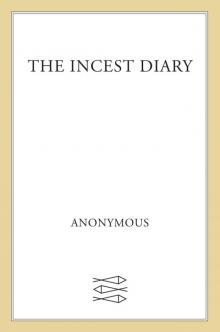 The Incest Diary
The Incest Diary Calling Maggie May
Calling Maggie May The Infidelity Diaries
The Infidelity Diaries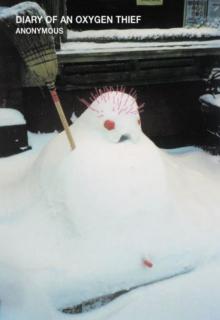 Diary of an Oxygen Thief (The Oxygen Thief Diaries)
Diary of an Oxygen Thief (The Oxygen Thief Diaries) ARABELLA
ARABELLA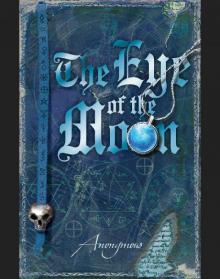 The Eye of the Moon
The Eye of the Moon Dara
Dara THE ALTAR OF VENUS: The Making of a Victorian Rake
THE ALTAR OF VENUS: The Making of a Victorian Rake The Book of Death
The Book of Death The Book of David
The Book of David The Devil's Graveyard
The Devil's Graveyard The Book With No Name
The Book With No Name I Am A Lesbian
I Am A Lesbian Njal's Saga
Njal's Saga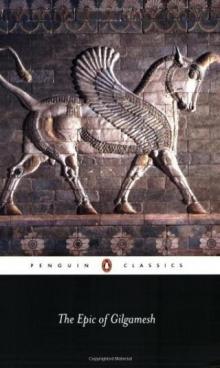 The Epic of Gilgamesh
The Epic of Gilgamesh Darling
Darling Tal, a conversation with an alien
Tal, a conversation with an alien Go Ask Alice
Go Ask Alice Aphrodizzia
Aphrodizzia The Campus Trilogy
The Campus Trilogy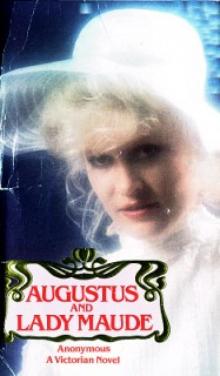 Augustus and Lady Maude
Augustus and Lady Maude Lucy in the Sky
Lucy in the Sky Sight Unseen
Sight Unseen Pleasures and Follies
Pleasures and Follies The Red Mohawk
The Red Mohawk A Fucked Up Life in Books
A Fucked Up Life in Books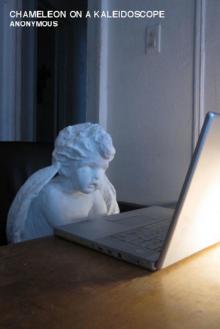 Chameleon On a Kaleidoscope (The Oxygen Thief Diaries)
Chameleon On a Kaleidoscope (The Oxygen Thief Diaries)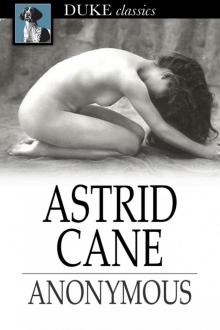 Astrid Cane
Astrid Cane BEATRICE
BEATRICE The Song of the Cid
The Song of the Cid